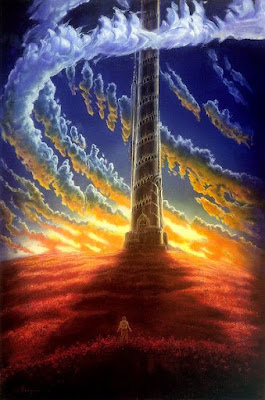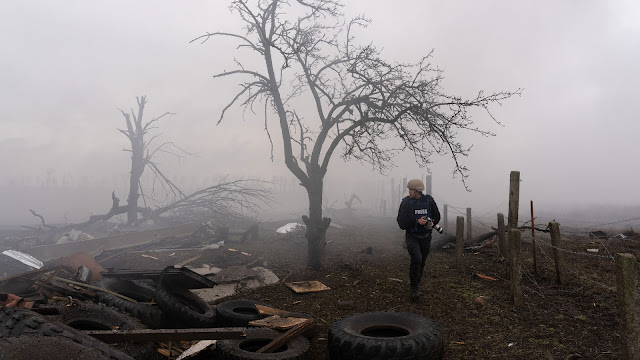Stephen King's The Dark Tower Broke Me
by Conor McGreevy
The following contains minor spoilers for The Dark Tower and several other works of Stephen King.
Having published more than 65 novels (many of them bestsellers), there’s no doubt that Stephen King is one of the most prolific authors of our time. Known for cultural icons such as The Shining, IT, Carrie, Pet Sematary, and countless others, the ripples of his dark and twisted imagination are sure to haunt book readers and movie watchers alike for generations to come. But I’m not here to talk about any of that normie shit. I’m here to talk about his less-well known magnum opus: The Dark Tower.
The Dark Tower is a sprawling, eight book, horror-fantasy epic, with a touch of sci-fi and a dash of western. It’s based loosely on Robert Browning’s epic poem, Childe Roland to the Dark Tower Came. Sony tried to make a movie of it in 2017, but it was bad. The story follows Roland Deschain, the last of the gunslingers, in his quest to find the Dark Tower, the mystical lynchpin of reality. Like most of King’s works, the atmosphere is immaculate, the characters are extraordinarily well realized, and the plot is astonishing. But this isn’t what makes The Dark Tower so incredible...
Not many people know that a lot of Stephen King's works take place in the same universe. Most of the clues are quite subtle; a few common characters here and there; shared locations and other references sprinkled in where the observant and dedicated reader will find them. But The Dark Tower is where it all comes together; indeed, it is here that King pulls back the curtain to reveal his true story, decades in the making. And believe you me, things get wacky.
To start, several of the main characters are taken directly from King's other works. King even writes himself as a character who is in the process of writing the series before it happens. But now I’d like to talk about one of the main antagonists, and my favorite villain of all time: Randyll Flagg. King describes Flagg as, “an accomplished sorcerer and a devoted servant of the Outer Dark, whose goals typically center on bringing down civilizations through destruction and conflict.” Indeed, Flagg’s been confirmed to appear in at least eight of King’s other works (although he goes by a different name in each, usually with initials R.F), and in each of them he is absolutely horrifying. He’s like the Joker on crack, but competent and supernatural. The sheer presence he occupies in every scene that he’s in is breathtaking. I’ll leave you with an excerpt with Flagg from The Wastelands, which is the third book of The Dark Tower:
“The stranger standing in front of the hatch wore a short, dark jacket belted at the waist, faded denim trousers, and old, dusty boots—the boots of a countryman, a range-rider, or—
“Or a gunslinger, Andrew?” the stranger asked, and tittered. The Tick-Tock Man stared desperately at the figure in the doorway, trying to see the face, but the short jacket had a hood, and it was up. The stranger’s countenance was lost in its shadows. The siren stopped in mid-whoop. The emergency lights stayed on, but they at least stopped flashing. “There,” the stranger said in his—or its—whispery, penetrating voice. “At last we can hear ourselves think.”“Who are you?” the Tick-Tock Man asked. He moved slightly, and more of those weights went sliding through his head, ripping fresh channels in his brain. As terrible as that feeling was, the awful tickling of the flies on his right cheek was somehow worse.“I’m a man of many handles, pardner,” the man said from inside the darkness of his hood, and although his voice was grave, Tick-Tock heard laughter lurking just below the surface. “There’s some that call me Jimmy, and some that call me Timmy; some that call me Handy and some that call me Dandy. They can call me Loser, or they can call me Winner, just as long as they don’t call me in too late for dinner.”The man in the doorway threw back his head, and his laughter chilled the skin of the wounded man’s arms and back into lumps of gooseflesh; it was like the howl of a wolf.”
This scene is a wonderful illustration of just what kind of story The Dark Tower is; absurdist horror told through an eerily tangible voice. And while it certainly has its flaws, no other series I know of has attempted a fraction of what The Dark Tower accomplishes. It is well known that King was on a lot of drugs when he wrote this series. And boy is it obvious.





So true
ReplyDeleteSo true
ReplyDelete